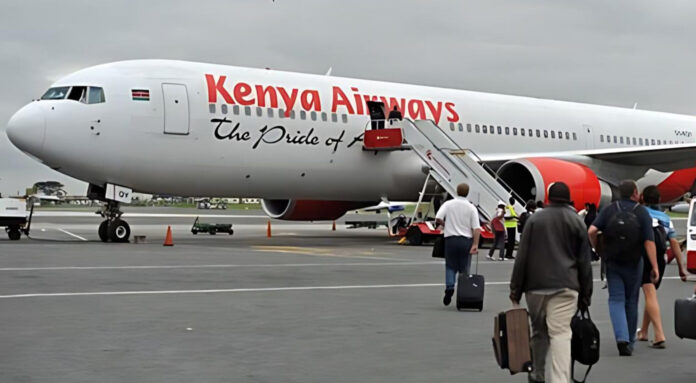When airport workers in Kenya went on strike to protest the potential Adani takeover of the country’s international airport, it triggered a series of events.
Armed with plastic trumpets and whistles, the workers took to the airport streets chanting against the deal.
A scuffle ensued with police who sought forceful coercion to get everyone back at their desk. The aftermath was cancellations and delays for hundreds of passengers.
The government appeared to have agreed to lease the airport to the Adani Group for 30 years in return for a $1.85 billion investment in its expansion.
The Kenya Aviation Workers Union (KAWU) expressed concerns that the deal could result in job losses, as Adani might bring in employees from outside Kenya.
The government previously stated that the airport is running beyond its current capacity and needs modernization, but it is not for sale. As a result, no decision has been made regarding the proposed ‘Public Private Partnership’ to upgrade JKIA.
The situation at Kenyan airports appears to have calmed down, with the Kenya Airports Authority (KAA) reporting that discussions are underway with relevant parties to resolve the issue. Besides JKIA, several other airports were also in near paralysis.
These include Moi International Airport, Kisumu International Airport, Eldoret Airport, and the neighbouring Nyerere International Airport, which was also affected as collateral.
Regional carriers were hit hardest by the strike of Kenyan aviation workers. The Kenya Civil Aviation Authority (KCAA) issued a Notice to Airmen (Notam), warning of flight disruptions for departures and arrivals and advised pilots to anticipate schedule delays.
RwandAir, Ethiopian and Ugandan Airlines advised their travellers to await more information as flights into and out of Nairobi were grounded.
RwandAir were the first to announce immediate cancellations of trips to Nairobi, while Uganda Airlines cautioned of possible delays and disruptions in regional flight schedules. Ethiopian Airlines noted that they were working to reduce passenger impact.
“All affected passengers will be rebooked on the next available flights. We apologize for any inconvenience caused,” RwandAir wrote.
Many travellers were left stranded at Entebbe and Kigali airports. Uganda Airlines has two daily flights from Entebbe to Nairobi, while RwandAir operates three flights between Nairobi and Kigali. Ethiopian Airlines runs four trips.
Despite the chaos, Kenya Airways continued operating local and regional flights, including those to Entebbe. However, local carriers like Jambojet had been reported to have suspended flights for some time.
Normalcy has been temporarily restored after the Kenyan High Court suspended the proposed lease of the airport until October 8th, when a court hearing is scheduled. The case was brought by the Law Society of Kenya (LSK) and the Kenya Human Rights Commission.










